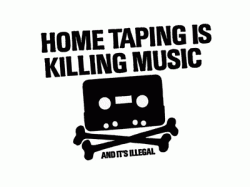Weekly News Roundup (24 March 2013)
SimCity. The game you love to hate. Or hate to love. I don’t know, one of those. I actually like the game and I find myself quite addicted to it. So it’s unfortunate that the game, in it’s current form, is a broken mess. Therefore, I’m treating it more like it’s an early beta version, and using it to learn how the game works, rather than be too emotionally attached to my metropolis creations (since I’ve already lost a city to one of the numerous city destroying bugs, I can’t afford to be too attached). My advice? Don’t pay full price for the game until most of the time wasting, soul crushing bugs have been fixed.
On to the news roundup …

A major decision in the U.S. Supreme Court this week, and a win for “common sense”. The court upheld the “first-sale doctrine”, overruling previous lower court decisions that ruled this doctrine did not cover foreign based works. It all came about when a textbook maker sued a eBayer for buying cheaper textbooks from overseas and selling them on eBay. The lower court initially ruled in favour of the textbook maker, and awarded a ridiculous $600,000 in damages to them. But subsequent appeals ensured the case was heard in front of the highest court of the land, and finally a copyright ruling that makes sense.
Had the ruling, which had a 6-3 split, gone the other way, it would have meant that websites like eBay, game stores, and even libraries, would be under new scrutiny in regards to goods originally purchased from overseas. Even garage sales would have been under threat if “first-sale” did not apply to foreign based goods.
Rooting for such a radical new interpretation of the copyright law, that would severely limit the rights of consumers, were the RIAA, the MPAA and even the Obama administration, a reliable friend of the former two.
While the principle of first-sale is sound, and now reconfirmed, copyright holders have already found many ways to bypass this anyway. Through the use of complicated licensing terms, and DRM, game, movie and music publishers have found it easy so far to prevent the resale of digital goods. That’s why you can sell your iPod, but not the music collection contained within, and why game publishers go to extremes to discourage the sale of second hand games (using one time activation codes and whatnot). I would imagine the marketplace would be far more competitive, and consumer in a far better position, if “first-sale” was vigilantly applied to digital goods too, but that’s just me.
——
Common sense would dictate that there isn’t a one-to-one correlation between piracy and lost sales. But what if there’s a correlation between piracy and a *gained* sale?
That’s one of the conclusions to come out of a new European Commission report into music piracy, and it finds that the links between piracy and lost sales are tenuous at best. The study was limited to only looking at website visits, and found that for every 10% increase in visits to websites offering illegal music downloads, there was a 2% – 4% increase in visits to legal music sale websites. The report did not have data on actual music transactions though, but these statistically significant results should not be ignored either.
Overall, the study found that in a hypothetical absence of illegal music downloads (not gonna happen!), people aren’t going to jump straight to buying music, something that’s plainly obvious to most people I would gather. So instead of being the big revenue killer that piracy has been thought of, it may well be a simple matter of “trespassing of private property rights”. As a content producer myself, I can see how, even without revenue loss, the “trespassing of private property rights” might otherwise make me extremely annoyed – nobody wants their private property rights to be violated – but I also understand how everything in the Internet age works, and that having my content pirated, while still annoying, is also a badge of honor of sorts. If my content wasn’t being distributed without my authorisation, it probably just means my content wasn’t good or popular enough in the first place. And if it gets pirated, then it’s up to me to leverage the popularity of my content and monetize it, and there are definitely ways to do this.
The Internet has democratized the natural selection process for content. Instead of publishers having a large hand in selecting what we should and shouldn’t be consuming, the Internet allows the consumer to make their choices directly, bypassing the publishing industry altogether if necessary. That’s what scares the companies that’s represented by the RIAA and the MPAA the most, because they don’t want to lose control. DRM, while being advertised as an anti-piracy tool, is really just a new way for Big Content to maintain control. That it doesn’t work to stop piracy isn’t an issue at all, not when it successfully forces consumers to use content only in the ways publishers want them to.
Just like how if you want to play SimCity, you have to buy it from Origin and play it via Origin. If you don’t like it, you can’t simply grab the Steam version because there is no Steam version.
I think I’ve played every Sim City game ever made, and I simply love the series, even the demented way SimCity 4 managed traffic, or the way you ended up with a city full of Arcologies (and police stations) in Sim City 2000. And this is why, despite the horrible DRM and the known issues with it, I, and many other SimCity fans, still went out and purchased the game. It’s this kind of loyalty that EA has exploited to their advantage, at the expense of everyone else, and not too dissimilar to the way Blizzard launched Diablo III.
But what seemed like launch glitches with the DRM, now seem like a much bigger issue, as while servers are now widely available, the whole online based gaming experience still leaves much to be desired. Updating cities in the same region can be cumbersome, often taking minutes, even though the instantaneous change is what’s needed. Some sync fails to occur entirely, until one logs off and logs back on. Server still become unresponsive at times, forcing gamers to wait 10 or 15 minutes at the city loading screen, with no explanation for the wait. And for no reason, changes made to the city can be lost and you’re forced to rollback to an earlier version (or even lose the city and region entirely, in some case). And it seems that forcing some of the processing online is not only not helpful (and not an efficient way of doing things), it’s producing gameplay bugs in the game’s traffic and trading management systems.
EA and Maxis defended the use of always-on DRM by saying that some vital game functions had to be pushed online for processing. While this may be true for those playing the game with friends, hackers have shown that this statement is false when it comes to those playing single player games, by producing a hack that allows offline play. As a bonus, the mod also fixes many of the issues that plague the game.
But the hack also allows public cities to be taken over and destroyed, it seems, suggesting that EA and Maxis’s always-online DRM isn’t doing it main job of protecting the integrity of the system from hackers. Again, not too dissimilar to what happened to Diablo III.
As I said a couple of issues ago, a good DRM, or “always-online” implementation, has to be invisible. It should sit in the background and not ever have to make the gamer aware of its presence, while doing everything it is designed to do, including anti-piracy and anti-hacking, and if possible, should bring added value to the game. The SimCity always-online implementation does exactly the opposite in all of these areas.
That SimCity attempts to add an online component to single player gaming isn’t the problem, the problem is that SimCity doesn’t do this properly. Even if we call SimCity an online game, even though most of its gameplay elements can be done offline, the problem is that SimCity is still just a really bad online game. And that’s inexcusable.
While I’m pretty confident that there hasn’t been a lot of pirated versions of SimCity being used by people – the legit version is broken enough as it is, no one will bother with the pirated version, and with SimCity doing good business, does this all count as a financial success for EA and to a lesser extent, Maxis? Fellow game developer, and creator of the mega indie hit Super Meat Boy, Tommy Refenes, says that successful anti-piracy, if it meant ruining it for paying customers, doesn’t make financial sense at all.

Super Meat Boy has been pirated at least 200,000 times, but has sold millions of copies – the creator isn’t too fussed about those 200,000 “lost sales”
Speaking from his own experience with SimCity, a game he purchased but has subsequently requested a refund for, Refenes goes on to explain how losses due to piracy is not something a company can put onto the balance sheet, as it’s not something you can even calculate with any degree of accuracy. On the other hand, angry customers returning products is something that ends up written in red ink, and has long term repercussions that may be irreparable (see Ubisoft’s DRM Adventures).
Refenes also explains that because there are infinite copies of something digital, it is entirely different to say the theft of a physical copy of something. Stringent security measures at say KMart, where Refenes used to work, may help to stop the theft and return the stolen item back to store shelves, with a measurable loss prevented, the same cannot be said of digital piracy, he says. “Your game is infinitely replicable at a negligible or zero cost (the cost bandwidth off your own site or nothing if you’re on a portal like Steam, eShop, etc). Digital inventory has no value. Your company isn’t worth an infinite amount because you have infinite copies of your game. As such, calculating worth and loss based on infinite inventory is impossible. If you have infinite stock, and someone steals one unit from that stock, you still have infinite stock. If you have infinite stock and someone steals 1 trillion units from that stock , you still have infinite stock. There is no loss of stock when you have an infinite amount … it is potentially one less sale but that is irrelevant. Everyone in the world with an internet connection and a form of online payment is a potential buyer for your game but that doesn’t mean everyone in the world will buy your game.”
It’s something that I’ve mentioned before, but the way game publishers are using DRM these days goes beyond a simple comparison of physical versus digital. It’s not just that they are employing security measures, it’s that they’re employing really really bad and intrusive security measures. The equivalent of DRM isn’t a security guard at the entrance of the store, it’s the equivalent of a pat-down search for every customer that leaves the store (or a full body cavity search in the case of always-on DRM – a traumatic experience that will be relived in your head every time you use said product). No store would do that and risk losing their once loyal customers, so why do game publishers think that this is okay? The only reason I can think of is that unlike most stores, game publisher’s products are exclusives. You can’t simply go to a more customer friendly store and buy the same product, you’re stuck with SimCity from EA’s Origin.
Or maybe not. Maybe there *is* a more customer friendly store, and more than one actually, and not only do they not punish you for spending your hard earned money, they’re not even charging you for anything. That store’s name is piracy, and in the battle between free with a side helping of guilt and not free with a big chunk of frustration, the choice that doesn’t frustrate wins most of the time.
![]()
It’s NPD time, this time for February 2013. Once again, the Xbox 360 was the most popular console in the U.S. market for the month of February, selling some 302,000 units. This beat the PS3’s 263,000. The Wii U languished at the bottom, selling only 66,000 units, 70% of which were the deluxe model of the console.
So once again, we have a double digit decline for retail sales, and both Microsoft and Sony will hope their new console will have a better start than the Wii U.
There’s a lot of talk about the casual gaming market, previously dominated by the Wii, now taken over by mobile apps. Most of the talk has been about how popular smartphones and tablets have gotten. The Wii U even tried to jump on the bandwagon by adding a tablet into the mix, but it doesn’t seem to have worked. But surely, it’s the value proposition that has had the most dramatic change. The choice is now between paying $50+ for a console game that you probably don’t even have time to play, versus a 99 cent game that you can enjoy at a moment’s notice in your spare time. It is comparing apple to oranges, but entertainment is entertainment. Just like how video games become a better value proposition than movies and music (and why it has necessitated the lowering of the price of these forms of entertainment), app gaming has become a better value proposition than console gaming. It may really be that simple.
But I’m sure someone will find a way to blame piracy for everything.
With the 2,000 word barrier broken according to WordPress’s word counter, it’s time to wrap things up. See you next week.


